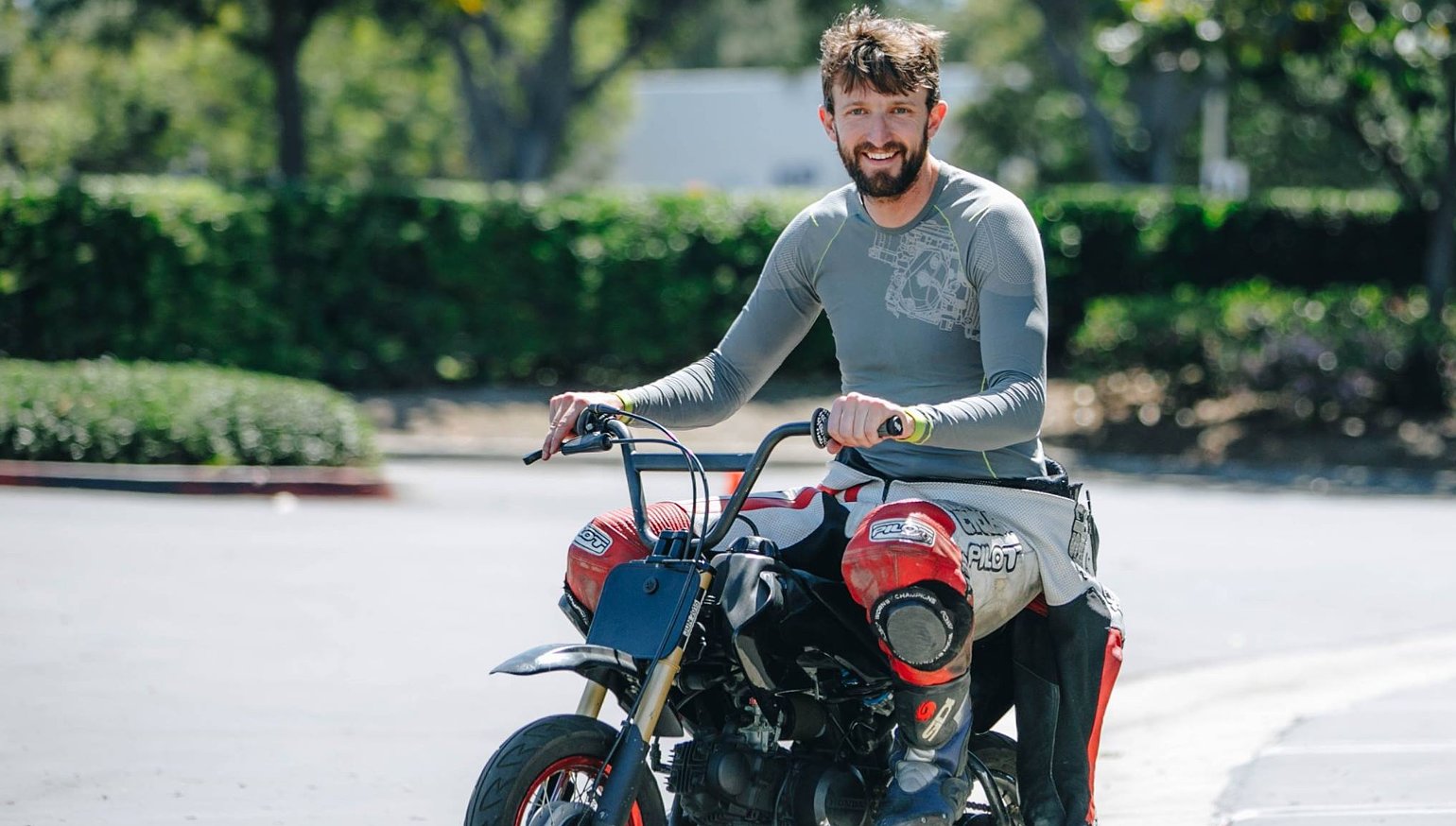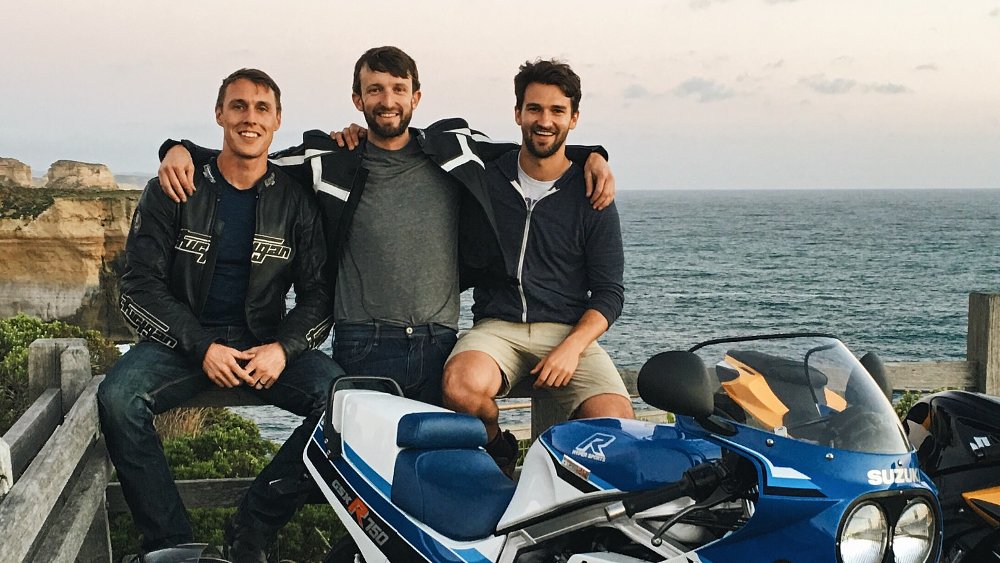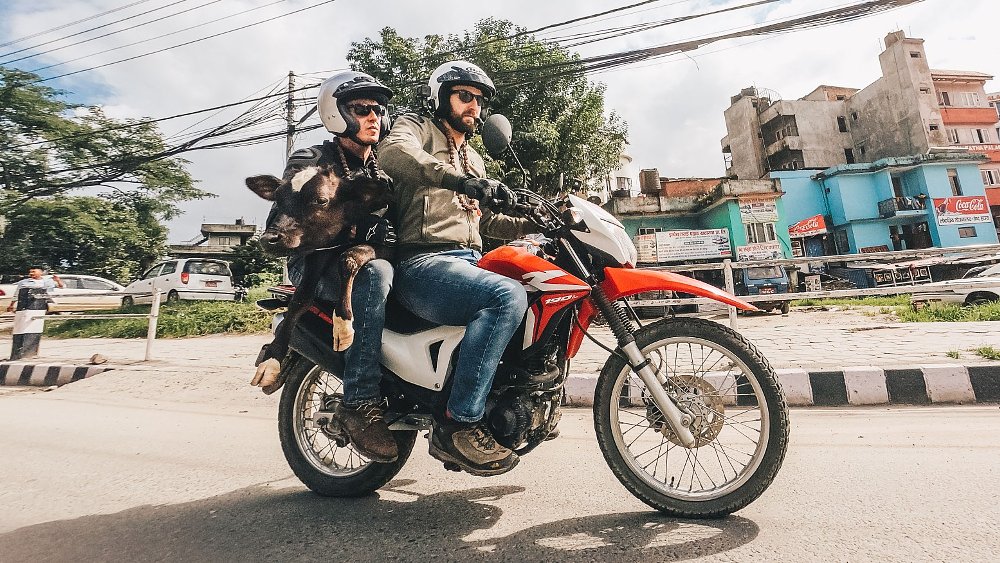By now you've seen the news that Ari Henning, Zack Courts and Spenser Robert are joining the Comoto media team and you'll be seeing more of their work here at RevZilla. Odds are you've already seen Zack's work in print and online for years. But what about his personal story?
We already interviewed Ari for one of our previous Season Two Highside/Lowside podcasts, so now it's Zack's turn to sit in the interviewee's chair for some friendly grilling. The following is an excerpt of the discussion, but to catch the full interview when it’s released later this week, type in “RevZilla” on Apple iTunes or your favorite podcasting app and subscribe to our Highside/Lowside podcast.
Spurgeon takes it from here.
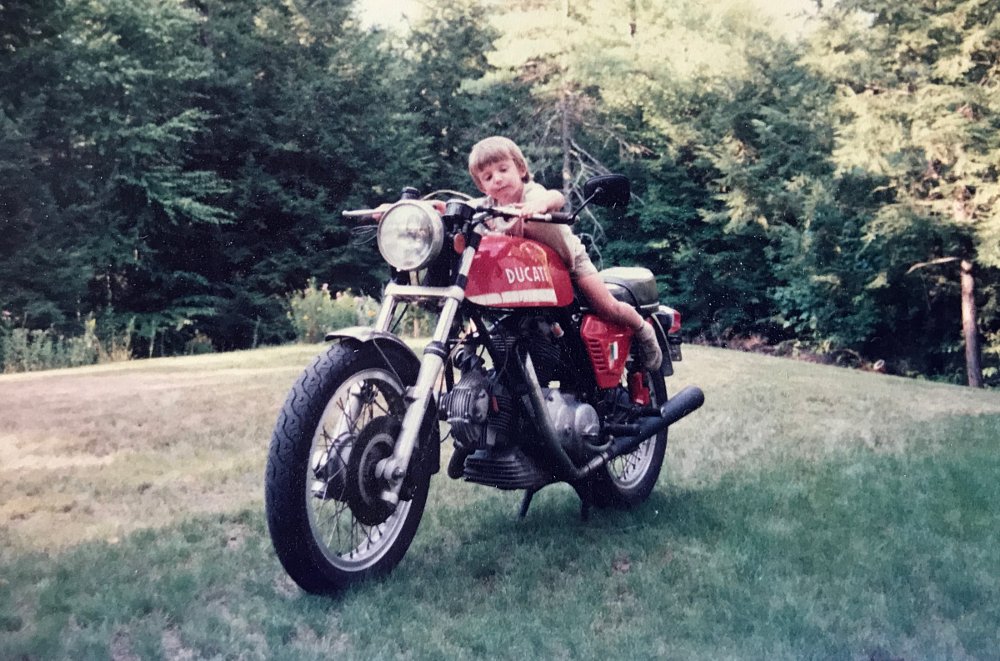
Spurgeon Dunbar: So, you've been racing for a long time and it was your dad who got you into it, correct?
Zack Courts: Actually, both my parents have their motorcycle license. My parents rode motorcycles around Morrocco in the Peace Corps in the early '80s, just before I was a twinkle. So, motorcycling is in my family. But yeah, it's largely my dad. He started racing when I was two years old and he was in the same club with Ari's dad.
So we sort of grew up in the racing paddock, watching our dads race. And when we weren't watching our dads race, we were doing wheelies on bicycles and, you know, getting chased by security guards and stuff like that. I don't really remember a time when I didn't want to ride a motorcycle, and when I could ride a motorcycle, I wanted to race one. And when I raced, I just wanted to go faster.
SD: So, how old were you when you started riding and racing?
ZC: I was eight years old when I got my first dirt bike, a Suzuki RM80, which proved to be a pretty difficult motorcycle to learn how to ride on. My first race was when I was 15. My dad and I raced a vintage sidecar in a vintage racing organization in New England. The regulations at the time were you had to be 16, but we sort of fudged it. We figured because I was the monkey, you know, I was the sidecar passenger, that maybe we would get away with it. But actually, in our first race, we finished second, I think, and there was a post-race interview for this crowd of people at this vintage race. And they said, "How old are you?" And I said, "15," and my dad always tells that story as one of the most embarrassing moments of parenting for him.
A year later, when I was 16, I started racing solo bikes myself. My dad got me a Honda RS 125 GP bike, sort of a customer GP bike from the '90s. Eventually, I raced all different kinds of stuff. I raced pretty seriously for 10 years at the club level from about age 16 to 25. I raced the 125 two-stroke. I raced the 250 two-stroke GP bike from about year 2000. I raced vintage bikes. Raced a vintage Honda CB 350. I raced a vintage Ducati. I raced a sidecar. I raced one of my dad's 1960s BMW race bikes at one point, and then I raced other modern stuff, too. I raced a Yamaha R6 and a Suzuki GSX-R600.
SD: And you actually raced against your dad a few times, right?
ZC: Yes, it's one of my favorite memories in motorcycling. We did it on multiple occasions, but the time I remember was at this track in Nova Scotia, Atlantic Motorsports Park, that had a vintage race there once a year. I was maybe 19 and I was racing a 350 Ducati from the late '60s and my dad had his 500 cc BMW that he raced. I have a very vivid memory of going down the back straightaway in Nova Scotia on this track, just both of us wide open and getting to the end of the back straightaway, and peeling into this super-fast right-hand corner, and sort of getting off the throttle at the same time, and pitching into the corner. And having our knee just off the pavement, and hearing his bike go to wide open just as I twisted my throttle all the way open. It was such a clear learning experience and such a vivid memory. It's really super special.
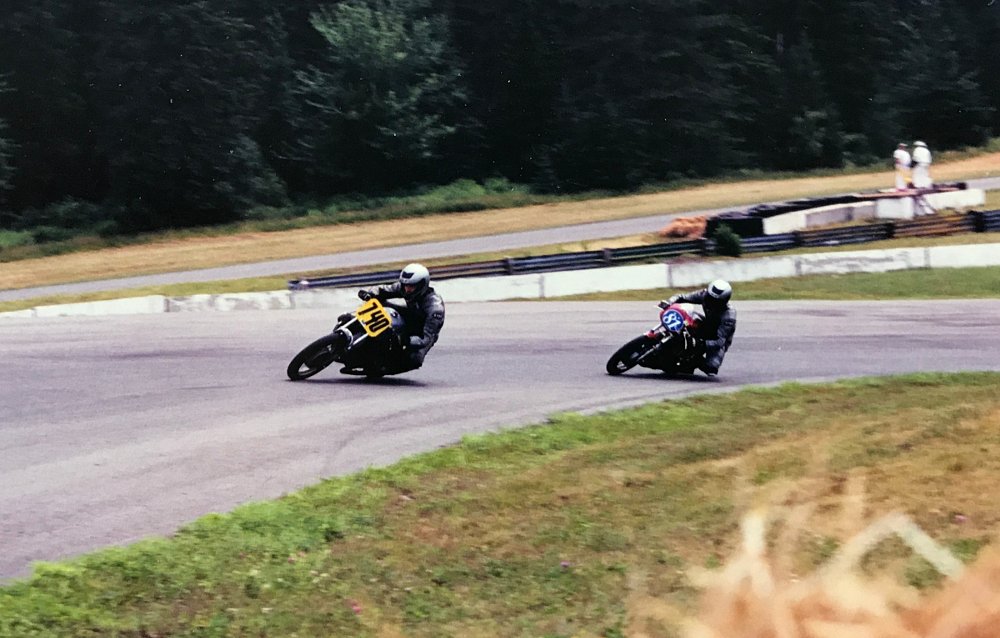
SD: You went to Suffolk University and studied print journalism. Did you keep riding and racing?
ZC: I was in school from September to May, basically. And the racing season was April to October, so there wasn't a ton of overlap. I worked summer jobs and lived at home and raced as much as I could during that whole period. I mean, racing was a huge priority for me. I played varsity soccer in college and I missed soccer games because I had races. I missed my cousin's wedding because I had a race. It was really the thing that I cared about most at the time, which is a little silly in retrospect, I guess.
SD: When you were studying journalism, did you think you could combine writing with motorcycling? Or were you hoping to be a professional racer?
ZC: I wasn't going to be the next Mick Doohan, or whoever the rider at the time was. So, when I went to college, one of the reasons I got a writing degree was I hoped I could write about something that I cared about. And motorcycling was obviously the dream, although I never expected that it would come to fruition, to be honest.
I worked at Gillette, the shaving company, "World Shaving Headquarters," as it says across the side of the building in Boston. It was my first job out of college and was a pretty crappy job. Then in 2008 I moved to California and got a job at a health insurance company where I wrote health care proposals and that kind of thing. So, yeah, working in corporate America. And it wasn't a bad time, actually.
SD: Ari told us the story about how you two reconnected. You'd lost touch as teens and were both living in California and he saw your name on some race results and assumed it had to be you.
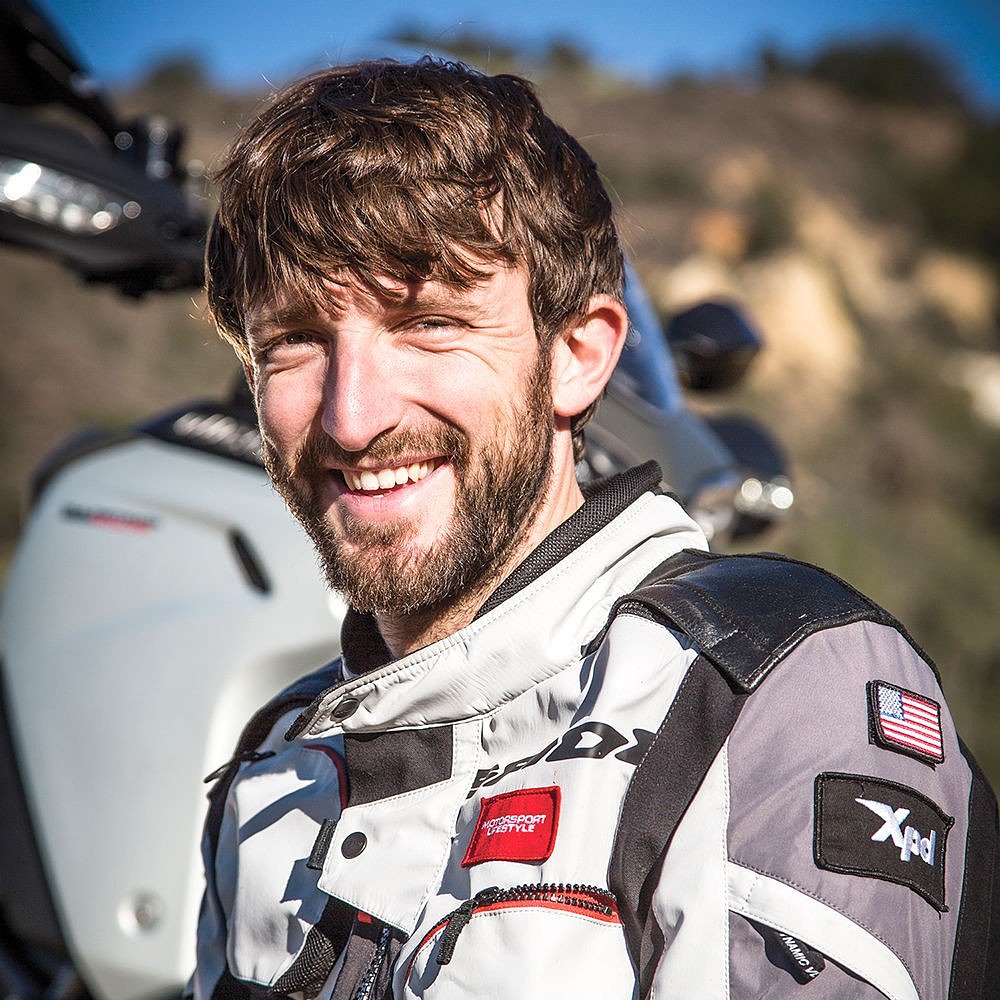
When I moved to California, I quit racing. I started riding around and not caring about how fast I was going and just, like, seeing the sights and feeling the freedom of leaving work on Friday and just riding south toward Half Moon Bay or something like that and taking pictures with a crappy digital camera. It was a whole new side of motorcycling that I really hadn't thought that I cared about. And when Ari started at "Motorcyclist," and started asking me to do some projects with him, it was also a really interesting merging of those worlds. It was such a bright spot in my life that I wasn't expecting. He definitely did a lot of work to get me that job and I'm forever appreciative because it was really what I wanted at the time.
I got some just unbelievable opportunities right out of the gate in that job. I got sent to northern Spain to ride the new Multistrada 1200. I got to ride Josh Hayes's R1 Superbike that had won the championship that year. I feel super fortunate because a lot of people have to work really, really hard to prove they're worthy of a job title like associate editor at the world's oldest motorcycle magazine. But Ari Henning, basically, just opened the door for me and said, "You should hire this guy." And so they did, and there I was riding Josh Hayes's Superbike after a few months on the job.
SD: I wouldn't discount yourself. You're one of the few people in this business who has professional training, with your college degree in print journalism. That takes me into my next question. I imagine it was more of a challenge transitioning from print to video.
ZC: I remember at some point going back and looking at one of the first videos I did, and it's truly awful. I was just so awkward. I didn't know what to say. I didn't know what to do with my hands. It's, like, there's very little that can prepare you for how much of your personality gets sucked away by that little horse eyeball. That lens looking at you. If you're ever watching people on camera and you think that they're doing a bad job, all I can say is you've got to try it to see how difficult that is.
SD: You began doing videos with Ari at "Motorcyclist" and then you both started working with Spenser Robert, who produced many of your videos.
ZC: When Spenser started, it really changed the game. I mean, he is a motorcyclist, first of all, sort of born and bred. His grandfather is a motorcyclist. His dad is motorcyclist. His brother's a professional racer. And he's a film buff. He went to film school. So, he's just this sort of unbelievably perfect combination of skills and interests for a director and producer of motorcycle entertainment. He's a big part of the ideas that we come up with and he's a huge part of why the videos are good from an editing standpoint, also.
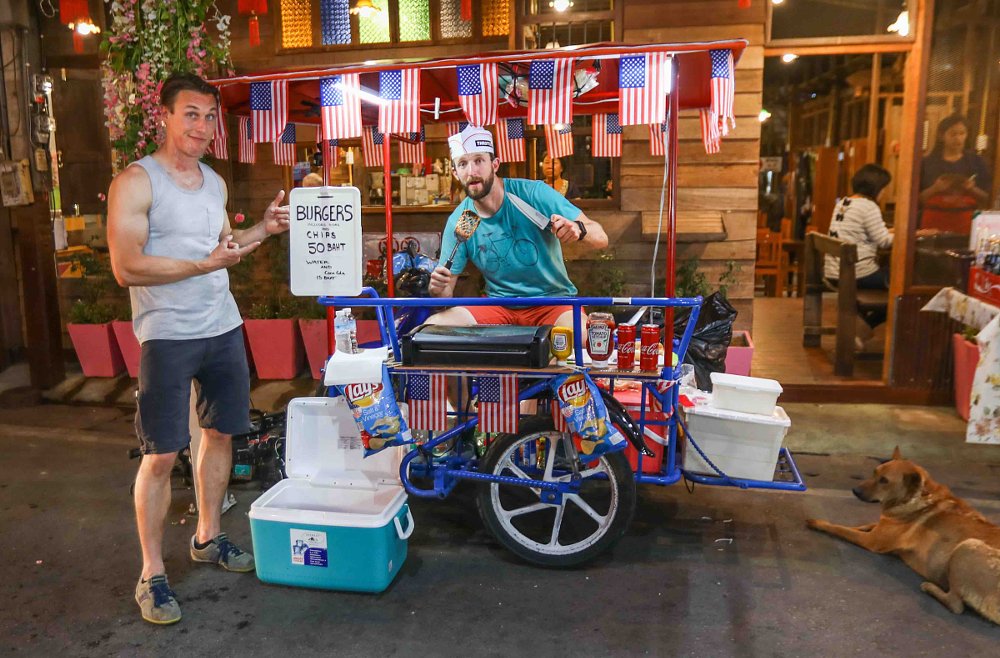
SD: What was it like leaving "Motorcyclist" and going behind the paywall at "MotorTrend"?
ZC: It was difficult. "Motorcyclist" magazine was pretty near and dear to our hearts and we felt really invested in the content that we were creating, and we felt like we were upholding standards in motorcycle journalism that were important to us. But the opportunity to create content that we hoped would make people who are not interested in motorcycles interested in riding, and interested in learning about motorcycle culture, was something we felt like we couldn't turn down.
SD: Over the last two years, you three guys created some of the craziest motorcycle content at "MotorTrend." What was the most exciting?
ZC: God, we did some pretty cool stuff. We took that Banshee engine and put it on a Yamaha R3 chassis. We cleared trails in Idaho. The one that stands out to me was when we went to Nepal and we rescued cows on a motorcycle, because that's what this guy does. He takes sort of orphaned and forgotten cows that are stranded in the streets of Katmandu and he rescues them and brings them to this little sanctuary and brings them back to health. And he does it all with a motorcycle, which is just insane.
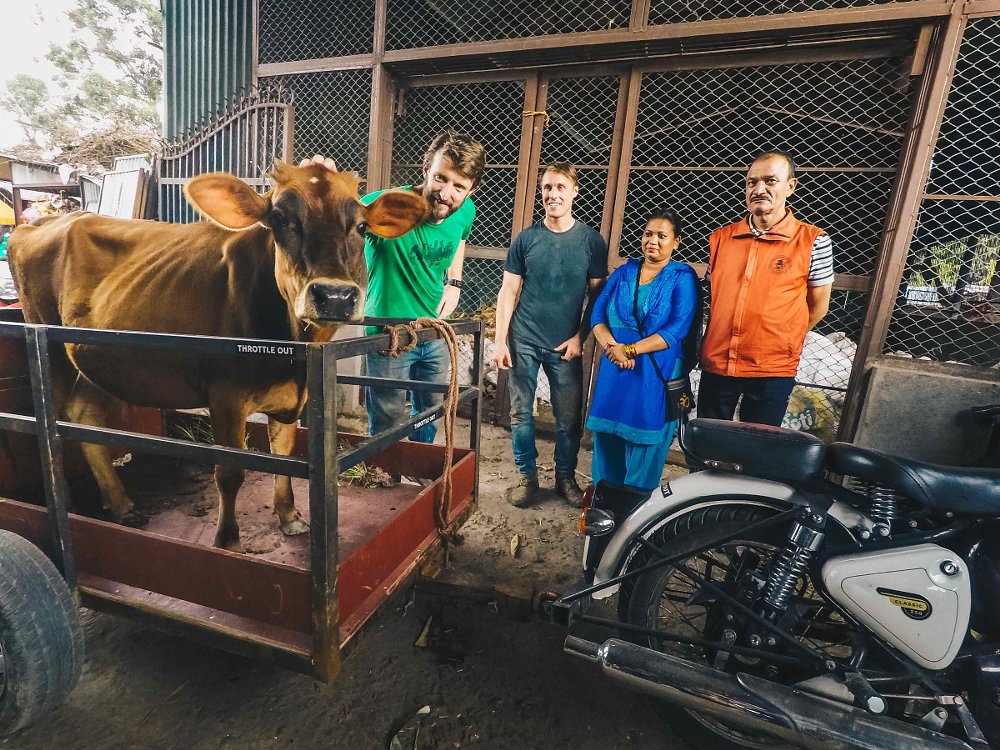
Going to Katmandu is interesting no matter the reason that you're there. But to go there and see this other side of motorcycle culture, and try to assist him in doing his work, was just eye-opening and important. It felt so much bigger than what we were doing, creating a little TV show.
SD: Two hard questions to finish up. First, you've ridden quite a few bikes in your career, but if you had to pick just one as the only bike you can ride for the remainder of your career, what would it be?
ZC: Yeah, that's a tough question. The BMW R 1250 GS is near and dear to my heart. It doesn't necessarily do any one thing better than any other bike, but it is a pretty glorious package. I'd go for the GS Adventure with the big gas tank, because I like the range, and I don't care about the weight. It's a marvel of engineering, in my opinion. I don't understand how or why. I even went 100 miles an hour on a dirt road on a GS and it was OK.
SD: Second question. Between your articles, your videos and your use of social media, you've become an extremely influential person in the motorcycling community. If you could offer one piece of advice for a new rider, or for someone who's looking at getting into riding, what would that one piece of advice be?
ZC: Wow, good question. I would say, my piece of advice for a new rider would be don't shop with your heart, shop with your brain. Get a bike that's already been tipped over. Get a bike that has low horsepower. It's really tempting to say, "Well, I can afford the Ducati Supersport so that's what I want to get." But don't get that. Just get a crashed Ninja 650 first. Get one that's already been tipped over, because you're going to make some stupid mistakes, and you don't want to do it with that shiny red body work.
Try to grow into motorcycling at a reasonable rate and not bite off more than you can chew. That's what I would say.




